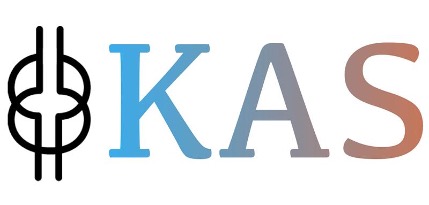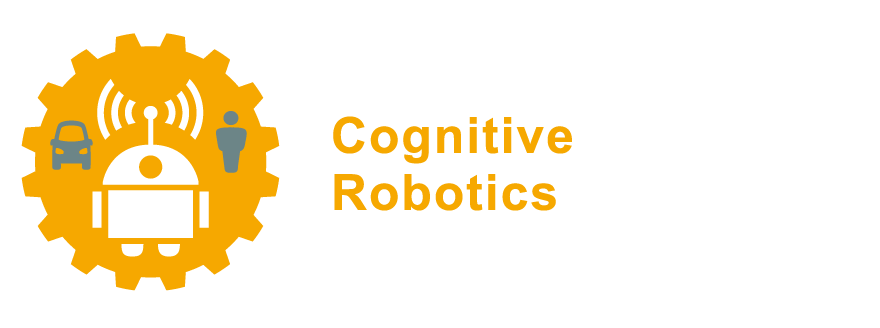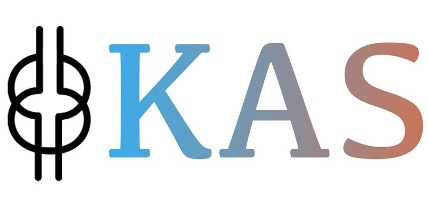


Knowledge-based Autonomous
Systems Laboratory
The mission of the Knowledge-based Autonomous System Laboratory is to increase the availability, reliability and trust in robots by means of self-awareness and adaptation.
We focus on the high-level control of complex autonomous robots performing in the real world, conducting interdisciplinary research on robot control architectures, systems and software engineering, and knowledge representation and symbolic reasoning.
Expertise
Autonomous Robots: Developing autonomous robots that exhibit awareness and adaptability in complex and uncertain environments, with a focus on applications such as mobile manipulation in retail, underwater autonomous vehicles, and self-awareness for tool making.
Cognitive Architectures: Advancing the field of cognitive robotics by exploring hybrid cognitive architectures inspired by biological awareness and utilizing model-based systems engineering to design and model intelligent control systems for autonomous robots.
Knowledge Representation: Innovating in knowledge representation and reasoning methods for autonomous systems, with a particular emphasis on developing novel approaches to address runtime uncertainty.
Systems Engineering: Applying model-based systems engineering methods to design and model the architectures of robotic systems, contributing to the development of reliable, trustworthy, and explainable robots.
Objective
Collaborative Research: Facilitating initiatives that bring together experts in autonomous robots, cognitive architectures, knowledge representation, and systems engineering to contribute to the collective understanding and advancement of the field.
Disruptive Innovation: Driving innovation in robotics by researching self-adaptive systems, motion planning for mobile manipulation, and the development of awareness architectures, ultimately aiming to create groundbreaking solutions with real-world applications.
Higher Education: Offering comprehensive courses in knowledge representation and symbolic reasoning, multidisciplinary projects, and electives in artificial intelligence, to prepare students for careers in robotics and autonomous systems at the master's levels.
Reliable Solutions: Focusing on methods and technologies to ensure the development of reliable autonomous robots, with an emphasis on addressing uncertainties.
News and Updates
2024
January 2024: Ph.D. candidate Corrado Pezzato successfully defended his doctoral dissertation with the title "Exploring Active Inference and Model Predictive Path Integral Control: A Journey from Low-Level Commands to Task and Motion Planning"!
2023
September 2324: MSc student Wissam Jabber successfully defended his master's thesis with the title "Failure Recovery with Ontologically Generated Behaviour Trees"!
June 2023: MSc student Bas van Vliet successfully defended his master's thesis with the title "Autonomous Underwater Docking: Towards Vertical Docking of an Autonomous Underwater Vehicle to an Unmanned Surface Vehicle in Rough Seas"!
March 2023: MSc student Jeroen Zwanepol successfully defended his master's thesis with the title "Architecture and Task Plan Co-Adaptation with Metaplan for Unmanned Underwater Vehicles"!
March 2023: MSc student Ke Xu successfully defended her master's thesis with the title "Iris - A Knowledge Graph-Based Chatbot for Explaining Robotic Scenario Information to Human Operators in a Retail Setting"!
March 2023: MSc student Stan Zwinkels successfully defended his master thesis with the title "Task-Specific Object Grasps Using Primitive Shapes and Symbolic Reasoning"!
2022
July 2022: MSc student Mohammed Mâachou successfully defended his master's thesis with the title "Knowledge-Based Approach for Mobile Manipulation with Active Inference"!
2021
August 2021: MSc student Floris van Tilburg successfully defended his master's thesis with the title "Using Retinanet to Determine Local Graspability for a Suction Actuator"!
June 2021: Martijn van der Sar successfully defended his master's thesis with the title "Zero-Shot Learning in Pick-and-Place Tasks Using Neuro-Symbolic Concept Learning"!
Talks and Seminars
October 2023, TU Eindhoven (Netherlands)
Robotics Seminar - 2 Needs for Autonomous Robots: Systems Engineering and Self-Awareness
September 2022, TU Bremen (Germany)
EASE Fall School - Systems Engineering, Self-Adaptation and Robots with a Deep Understanding
• July 2022, University of Alcala de Henares“Introduction to Model-Based Systems Engineering” PhD school, Univ. Alcala de Henares,
Spain, July 2022
Metacontrol: self-adaptive architectures for autonomous robots’ control
• INCOSE Webinar with Prof. Jose Luis Fernandez, online Nov. 2020
“ISE&PPOOA a MBSE Methodology from System to Software Architecture”
• Workshop organized by the TU Delft AgriFood Institute, Delft (online), 2020
• German Rese arch Center for Artificial Intelligence GmbH, Bremen, Germany, March 2019
• Artificial Intelligence Institute, Univ. Bremen, Germany, Feb 2019
• ROS-Industrial Conference, Stuttgart, Germany, 2018
• Workshop “Experimental Robotic Grasping and Manipulation -- Benchmarks, Datasets, and
Competitions” @IROS18, Madrid 2018
• Workshop MORSE 2018 @MODELS18 Conference, Copenhagen, Denmark, 2018
• ROS-Industrial Conference, Stuttgart, Germany, 2017
• International Masterclass Robotics, Delft, The Netherlands, 2017
• ROS-Industrial Conference, Stuttgart, Germany, 2016
• Robot Forum Assembly, Parma, Italy, 2016
• Seminar at Universidad de Zaragoza, Spain, 2015
